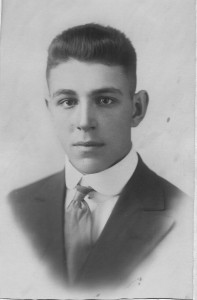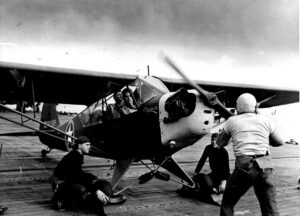When war broke out between the United States and Spain in 1898, President William McKinley, in a move to help heal the wounds of the Civil War and reunite North and South, appointed a number of former Confederate officers to command volunteer units. One of these former rebels was Joseph Wheeler, popularly known as “Fighting Joe.”
Joseph Wheeler was born on 10 September 1836 in Augusta, Georgia, to a family that had moved from New England. After his mother died and his father lost his fortune, the Wheeler family returned to Connecticut. In his youth, he did not receive regular education. Nevertheless, he earned an appointment to West Point in 1854.
After graduating from West Point in 1859, Wheeler served with the Mounted Rifles in the Regular Army and participated in campaigns against Indians in Kansas and New Mexico. His career with the Army, however, would be relatively brief. When southern states began seceding from the Union in 1860 and 1861, Wheeler decided to side with the newly formed Confederacy. He resigned his commission on 22 April 1861 and joined the Confederate Army.
Initially commissioned as a first lieutenant of artillery, he was appointed colonel of the 19th Alabama Infantry on 4 September 1861 and led the regiment at Shiloh in April 1862. Shortly after the battle, MG Braxton Bragg made Wheeler the chief of cavalry of the Army of Mississippi. In October 1862, he was promoted to brigadier general. He was later promoted to major general in January 1863, and, in 1864, he was promoted to lieutenant general at the age of twenty-eight.
For much of the war, Wheeler was almost constantly engaged in battle. He participated in hundreds of battles and skirmishes, including Murfreesboro, Chickamauga, Chattanooga, and Atlanta, was wounded three times, and had sixteen horses shot from under him. In addition, thirty-six staff officers fell while serving at Wheeler’s side.
During the Atlanta campaign, Wheeler conducted several effective raids against the Union lines of communication. After Atlanta, however, Wheeler’s command was criticized for lacking discipline, and Wheeler was replaced by LTG Wade Hampton.
After his capture in Georgia in May 1865, he was sent to Fort Delaware and remained there until his release on 8 June. During Reconstruction, Wheeler was engaged in a number of activities. He was a merchant in New Orleans for a brief period before eventually settling in Alabama. He later became a cotton grower, lawyer, and politician. He was elected to Congress in 1881 and eventually served eight terms in the House of Representatives. Wheeler was also active in efforts to reintegrate the former Confederate states into the Union.
When war broke out between the U.S. and Spain in 1898, President McKinley appointed Wheeler a major general of volunteers. Wheeler, then at the age of 62, was given command of a dismounted cavalry division in V Corps, the unit assigned to undertake the invasion of Cuba.
While Wheeler’s service in Cuba was relatively brief, he played an important role in the fighting shortly after American forces landed on 20 June 1898. After coming ashore at Daiquiri, Wheeler pushed his forces forward toward the coastal village of Siboney, where additional landings were to take place. There, he learned from Cuban rebels that Spanish forces held the town of Las Guasimas, a strategic point three miles inland and along the road to Santiago.
Wheeler decided to attack. On the morning of 24 June, Wheeler’s troops, after advancing on narrow and tangled trails, were met with heavy volleys of rifle fire, forcing Wheeler to call for reinforcements. However, just as they arrived, the Spanish began to retreat towards Santiago. As the Spaniards began to retire, Wheeler, always an excitable soldier, was allegedly reported to have cried out, “We got the damn Yankees on the run!” proving that old sentiments die hard. While the battle was brief and casualties light, it was an important engagement because it eliminated the threat of enemy troops interfering with landing operations and cleared the road to Santiago.
After Las Guasimas, Wheeler, like many others, fell ill from the tropical diseases ravaging American troops. Despite his condition, Wheeler participated in the battle for San Juan Hill and provided advice to MG Shafter, commander of U.S. forces in Cuba, during the siege of Santiago.
After the war, Wheeler commanded Camp Wikoff, a convalescent and demobilization center at Montauk Point on Long Island. In June 1900, he was commissioned a brigadier general in the Regular Army, but resigned a few months later. He died on 25 January 1906 and was buried in Arlington National Cemetery.



